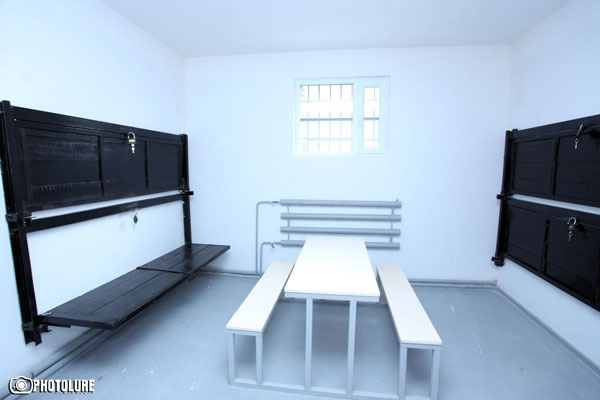In its new report on Armenia published today, the Council of Europe’s Committee for the Prevention of Torture (CPT) noted positive developments in the treatment of life-sentenced prisoners, but pointed out remaining problems with ill-treatment in the police custody, understaffing and lack of meaningful activities for inmates. The response of the Armenian government was published together with the report.
While the decreased number of allegations of police ill-treatment in detention suggests an improvement in this area, there are indications that this problem has not been entirely eradicated. In this respect, the CPT identified a number of deficiencies in the procedure for recording injuries of detainees.
The CPT recommends that the Special Investigation Service be significantly reinforced in terms of operational staff, in order to no longer need to rely on local police officers. Legal safeguards against ill-treatment, although effectively operating, do not cover situations when persons are “invited” to come to the police for “informal talks”, but have to stay there for hours and even days before being formally declared a criminal suspect. The visit to the military detention facilities in Yerevan revealed an extremely poor offer of activities, which, coupled with the problems in providing adequate psychiatric and psychological assistance, made it clear that the isolator was not a suitable place for prolonged detention.
At the national level, there was no longer any overcrowding of prisons, but some establishments, especially the Nubarashen Prison, were overcrowded. The CPT strongly encouraged the Armenian authorities to further pursue measures to combat overcrowding, to step up efforts to combat corruption in the prison system, and to take resolute steps to put an end to the practice of the management delegating authority to a select number of inmates (the so-called “watchers”).
The delegation noted positive developments in the treatment of prisoners sentenced to life imprisonment: they were no longer routinely handcuffed when outside their cells, and for the first time several of them had been transferred from closed to semi-closed regime.
Read also
In Nubarashen and Yerevan-Kentron prisons the CPT delegation observed serious overcrowding and very poor material conditions. The Committee remained seriously concerned by the almost total absence of any regime of activities in any of the prisons visited, and called on the authorities to develop such programmes.
Healthcare services in prisons remained understaffed and poorly equipped, serious shortage of medication was observed, and the medical screening on admission, especially recording of injuries, remained totally inadequate, with the police and prison stuff routinely present, in violation of the medical confidentiality principle.
The report is based on the visit of the CPT’s delegation to Armenia from 5 to 15 October 2015.



















































